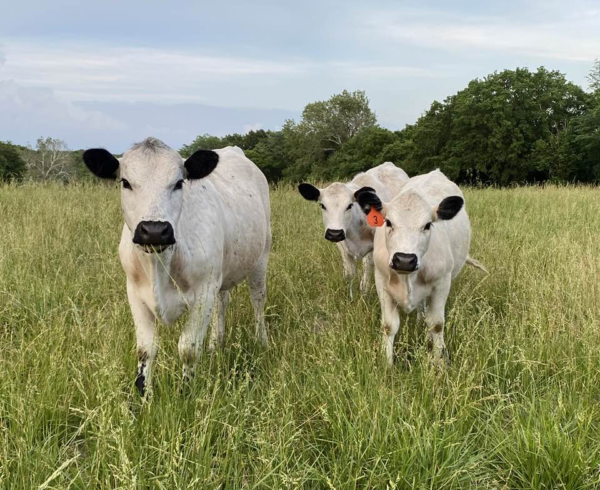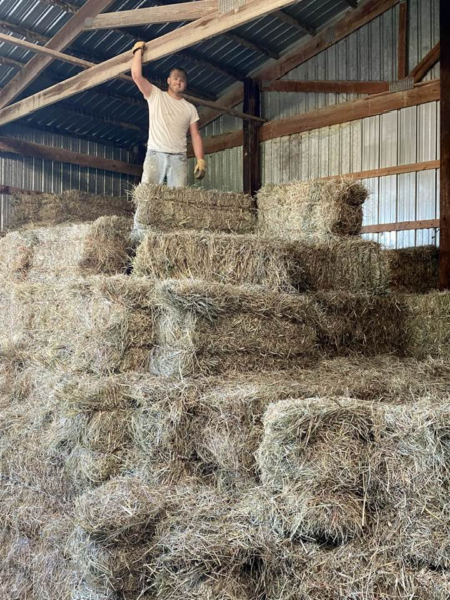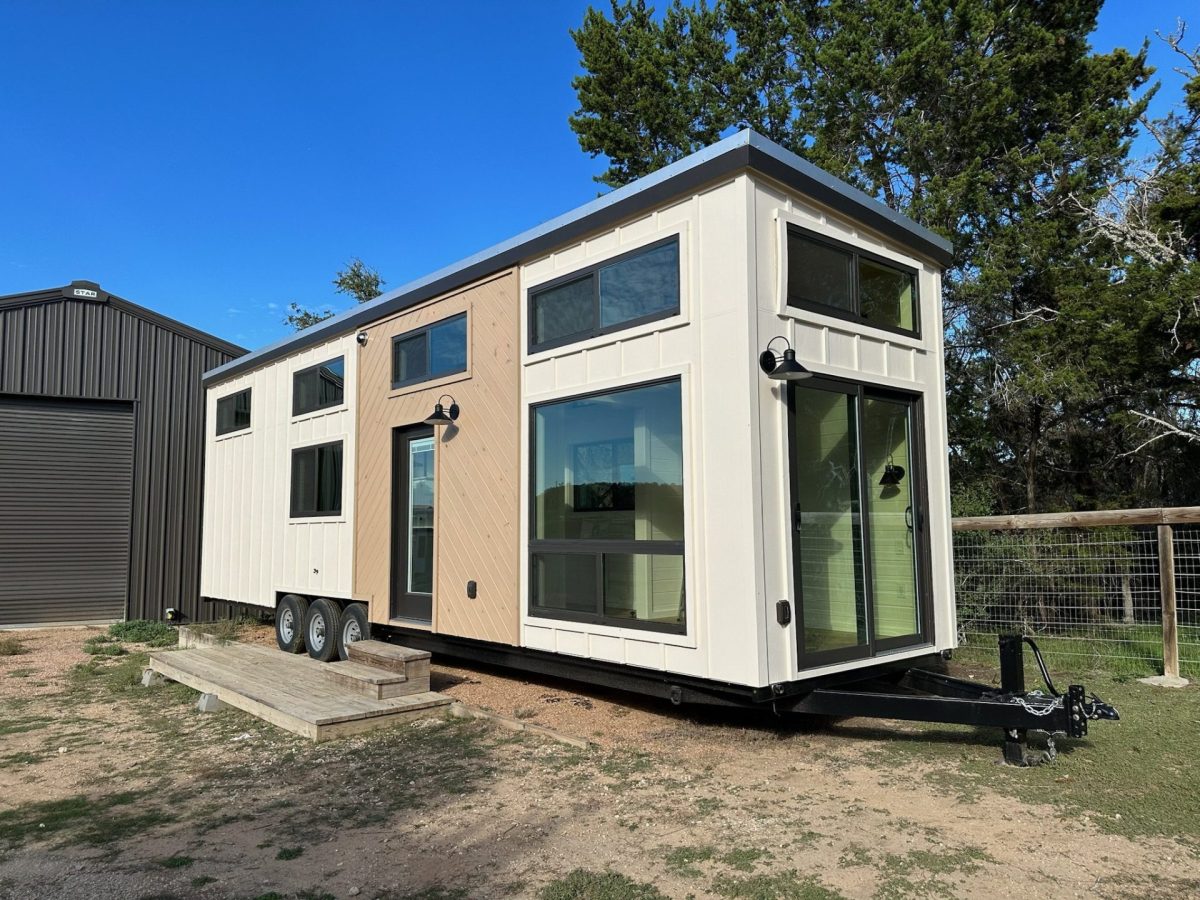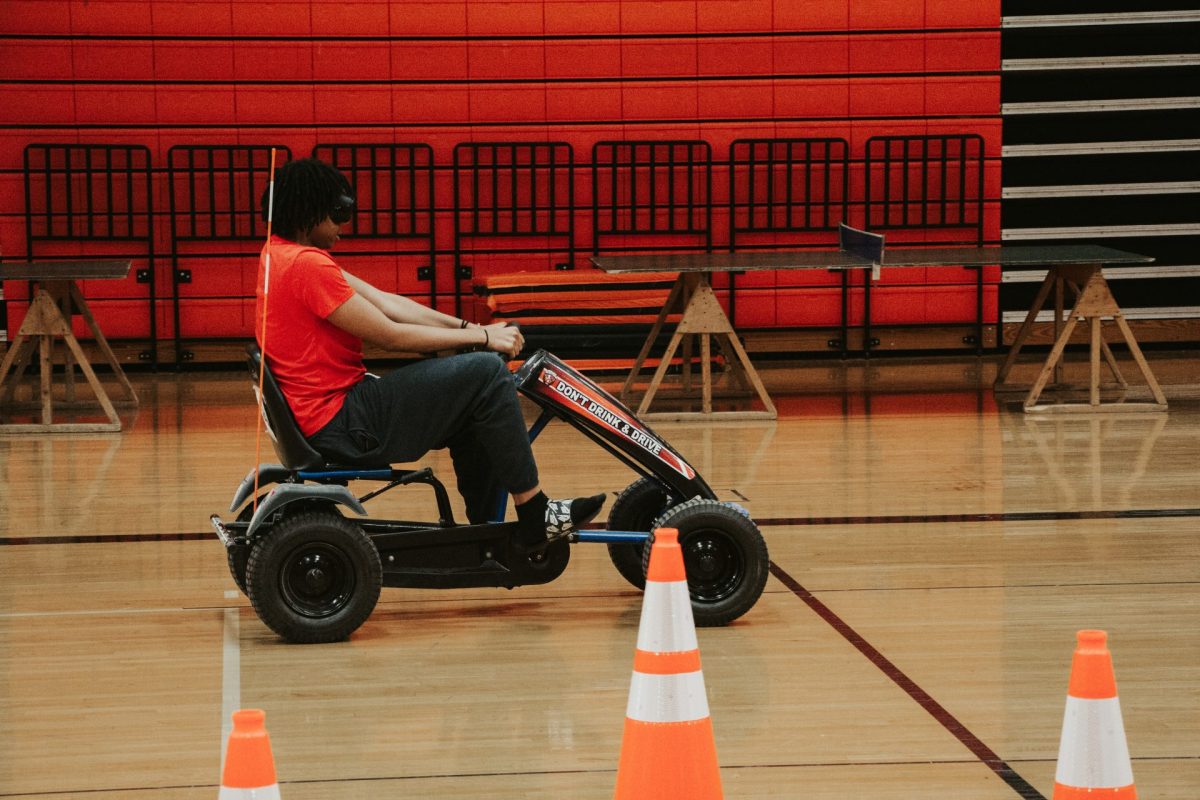Mr. Davidson is the gifted teacher here at the high school, but you may not know that, when he’s not at school, he works hard on the farm he owns in Linwood, KS. Davidson has lived on the 140-acre farm his whole life, but it’s been in his family for over 120 years. It was purchased by his great-great-grandfather, David Davidson, in 1896 and has been passed down through the generations.
While Davidson is the official owner of the property, his dad actually still lives on the land, in a separate house from Davidson and his wife.
On the farm, Davidson has mostly animals, but has grown soybeans and corn in the past. Right now he has cows, chickens, a goat, and a couple horses named Traveler and Wildfire.
“We want to transition to do mostly cattle though,” Davidson says, “We’re growing our cow herd and I spent last spring building a fence and I’m going to be building more fence here before long. We want to try and have most of the property be pasture for cattle.”

Most of the farm’s income comes from the cattle, but Davidson says the chickens provide nice spending cash from occasionally selling eggs to neighbors. The chickens’ main benefit is that the family never has to buy eggs.
The goat’s arrival on the farm is a funny story.
“A mechanic [who] works on a lot of our stuff…his nephew had a wedding where he married someone from the Middle East or something. Well, I guess it’s tradition [in that culture] that you give someone a goat to slaughter as a wedding present, and they didn’t want to slaughter and they didn’t know what to do with it. So he asked, ‘Hey, can we put it at your farm?’ And it was supposed to just be there a week but then a week turned into like three or four months and it’s still here.”
Instead of having a lot of crops, Davidson says they let grass grow and then turn it into hay bales, which make a lot of profit. They also have a garden where they grow more household crops like tomatoes and potatoes.
Living on a farm means they don’t have to go to the store as often. As I already mentioned, they get eggs from the chickens and vegetables from their garden. They can also freeze ground beef from the cows and store it for a long time.
Running a farm isn’t always easy, though. Davidson says one of the biggest challenges is keeping up with the necessary equipment.
“To run a farm efficiently you need functional equipment, which means you’re going to be spending a lot of time and resources and ultimately money keeping stuff going,” he says. “It’s just a constant battle of, you know, things breaking. There’s a lot of stuff on my farm that is either completely broken or mostly broken. Very few things work perfectly every time.”
Despite the challenges, Davidson feels that running a farm is a very rewarding lifestyle.
“To be responsible for a big chunk of land and also to continue something that my ancestors started. That’s a cool feeling that I don’t know if a lot of people get, and I try to appreciate it and be grateful for it.”
Davidson says that what he enjoys most about farm life is the open space away from the hustle and bustle of a city or suburb.
“Before I moved to my family’s farm I actually lived in Bonner for a little while,” Davidson shares. “I lived in apartments in Kansas City for a little bit. And I felt very suffocated. I was around tons of people and I’m someone that needs open space. I need fresh air. I need time to kind of be by myself.”
He says that being outside, enjoying the sun, really boosts his mood. He likes to be able to come home from a busy week at school and decompress outside.

“Even if it’s just mowing the grass or something, I just need to be doing something outside and living on a farm is a big outlet for me doing that.”
I asked Davidson how long he sees himself running the farm. “Till I fall over dead,” he says, “That’s the Davidson way. That’s how all the other Davidsons did it; you just kept going until your body gave out. I plan on doing the same.”
Davidson currently has two young kids. When they’re older, they’ll have chores around the farm, but he ultimately wants to leave the decision to come back and live there up to them. That’s what his parents did for him, which he’s grateful for.
Davidson concludes by acknowledging his life is very different from most other teachers here. “I know I spend my summer breaks vastly differently from most teachers I work with. Like, whenever we share stories about summer break, most teachers are talking about vacations or relaxing drinking wine. And I’m usually talking about sweating and fighting off heat stroke while I put up hay bales in July.”
It may be very different to the lives of a lot of people, but I think it’s cool that Mr. Davidson gets to live a unique, fulfilling lifestyle outside of his teaching career.








